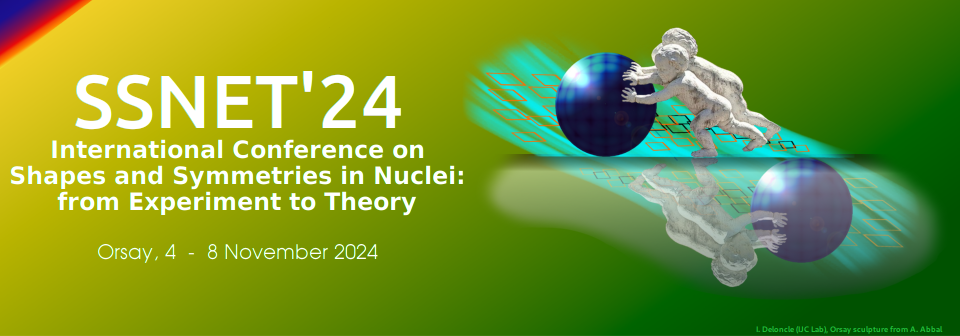Orateur
Description
Nuclear electromagnetic moments provide essential information in our understanding of nuclear structure. Observables such as electric quadrupole moments are highly sensitive to collective nuclear phenomena. In contrast, magnetic dipole moments offer sensitive probes to test our description of microscopic properties such as those of valence nucleons. Although great progress was achieved in describing the electromagnetic properties of light nuclei and experimental trends in certain isotopic chains, a unified and consistent description across the Segré chart of nuclear electromagnetic properties remains an open challenge for nuclear theory.
In nuclear-DFT, we align angular momenta along the intrinsic axial-symmetry axis with broken spherical and time-reversal symmetries. We fully account for the self-consistent charge, spin, and current polarizations – in particular through the inclusion of the crucial time-odd mean-field components of the functional. Spectroscopic moments are then determined for symmetry-restored wave functions without locally adjusting parameters or using effective charges or effective g-factors.
Systematic DFT results were so far obtained in the unpaired odd near doubly magic nuclei [1], heavy paired odd open-shell nuclei [2,3], and in indium [4], silver [5], tin [6], and potassium [7] isotopes. In this talk, I will focus on those obtained for the ground and excited states in even-Z odd-N (82

